- News
- Reviews
- Bikes
- Accessories
- Accessories - misc
- Computer mounts
- Bags
- Bar ends
- Bike bags & cases
- Bottle cages
- Bottles
- Cameras
- Car racks
- Child seats
- Computers
- Glasses
- GPS units
- Helmets
- Lights - front
- Lights - rear
- Lights - sets
- Locks
- Mirrors
- Mudguards
- Racks
- Pumps & CO2 inflators
- Puncture kits
- Reflectives
- Smart watches
- Stands and racks
- Trailers
- Clothing
- Components
- Bar tape & grips
- Bottom brackets
- Brake & gear cables
- Brake & STI levers
- Brake pads & spares
- Brakes
- Cassettes & freewheels
- Chains
- Chainsets & chainrings
- Derailleurs - front
- Derailleurs - rear
- Forks
- Gear levers & shifters
- Groupsets
- Handlebars & extensions
- Headsets
- Hubs
- Inner tubes
- Pedals
- Quick releases & skewers
- Saddles
- Seatposts
- Stems
- Wheels
- Tyres
- Health, fitness and nutrition
- Tools and workshop
- Miscellaneous
- Buyers Guides
- Features
- Forum
- Recommends
- Podcast
review
£2,649.00
VERDICT:
The Secan impresses with fine handling and great performance, whatever the terrain
Weight:
9,980g
Contact:
At road.cc every product is thoroughly tested for as long as it takes to get a proper insight into how well it works. Our reviewers are experienced cyclists that we trust to be objective. While we strive to ensure that opinions expressed are backed up by facts, reviews are by their nature an informed opinion, not a definitive verdict. We don't intentionally try to break anything (except locks) but we do try to look for weak points in any design. The overall score is not just an average of the other scores: it reflects both a product's function and value – with value determined by how a product compares with items of similar spec, quality, and price.
What the road.cc scores meanGood scores are more common than bad, because fortunately good products are more common than bad.
- Exceptional
- Excellent
- Very Good
- Good
- Quite good
- Average
- Not so good
- Poor
- Bad
- Appalling
Adventure and allroad bikes are all the rage right now, and not without good reason. Highly versatile and endlessly adaptable, they really do have the potential to eliminate N+1 for good. In taking a plethora of tyre widths, the new Secan – the latest model from young British company Fairlight Cycles – can be pressed into action as a rugged off-road bikepacking bike or shod with wide slicks, mudguards and racks for the daily commute or multi-day tour.
- Pros: Beautiful to look at, beautiful to ride
- Cons: The weight, compared to carbon, might put some people off
kRide and handling
I've ridden a lot of very good gravel and adventure bikes over the last few years and the new Secan is comfortably up there with the best. What's clear is that the category offers a breadth of choice depending on where your priorities lie. From the impressive smoothness of the Specialized Diverge to the rapid and lightweight Open UP, there's a bike to suit all tastes.
The Secan may not be the lightest option – steel never will be – but it doesn't lack the performance that makes it a really fun and exciting bike to ride. The ride quality and the smoothness on rough terrain more than compensate as well. I'm a sucker for a good steel road bike, which is why I've always owned one, and the Secan offers that unmistakable balance of comfort, unflappable smoothness and assured handling you expect from a very well designed steel frame.
Stu heaped praise on both versions of the Strael, the company's road-orientated model, and I'm going to do the same on the new Secan. That the Secan impresses should be no surprise; it owes a lot to the Strael, with the changes aimed only at bolstering its all-terrain capability and handling.
Regardless of which tyre and wheel size you opt for (more on that in a bit), the handling of the Secan is pretty close to perfect. I put the bike through its paces on local mixed terrain rides and also took part in the inaugural GritFest two-day gravel enduro (highly recommended) and the assured handling was a continual highlight.
The steering leans towards the more relaxed end of the scale. That means when you're screaming down a fast and loose gravel road the Secan feels surefooted. You quickly get the reassurance it's not going to do anything alarming and try to pitch you into a ditch or tree at high speed!
The Secan's stretched 430mm chainstays produce a 20-30mm longer wheelbase than the Strael, which benefits high-speed handling on loose ground. The head angle is also a bit slacker (72 degrees) and the bottom bracket a smidgen lower, which all adds up to that extra stability it displays when pounding along a gravel path.
Fairlight designer Dom Thomas has fine-tuned the custom Reynolds 853 tubeset to offer just the right amount of stiffness and flex. With the new beefy carbon fork, the front of the bike feels direct, but it doesn't transmit a lot of shocks whatever terrain you're riding on, be it a rough surfaced back lane or a gravel-strewn forest fire road. The frame also manages to tame the harsh vibrations to ensure riding across lumpy terrain is as comfortable as it can be without suspension.
And when you've swapped the knobblies for 32mm slick tyres and head out on a regular road ride, the Secan is smooth, comfortable and easy handling on backcountry roads. It provides precise handling when going at pace through bends and sweeping corners. Granted, that sort of riding does see it stray into the Strael's territory, but for me this is a big attraction of the Secan and its brethren: the ability to ride well whether set up as a pure road bike or an off-road gravel crusher.
There might be lighter and stiffer frame materials, but steel benefits from decades of development and it offers a performance that gives very little away to other types when used in this context. The weight disadvantage is smaller than you might think as well. When racing the timed stages of the Gritfest event, I never felt any penalty on account of the material the frame was made from. The event also highlighted how well the Secan handles everything from smooth tarmac to fine grit to boulder dashes.
Tyre and wheel choice is an area of much-heated debate with this new breed of allroad bike. The Secan opens up the options more than most. I tested it with a wide assortment of wheels and tyres, from 650B 2.2in Continental Mountain King and 47mm WTB Byways tyres, to 700C 42mm WTB Resolutes, 40mm Panaracer GravelKings, 27mm Challenge Paris-Roubaix and 32mm Bontrager AW3s. What tyres you choose depends on the terrain you're riding, the ratio of road to off-road, the speeds you're riding at and the sort of ride you want.
First things first, the Secan rode well with each wheel and tyre combination I tested. I personally leaned towards a 40-43mm gravel tyre on a 700C rim as being the fastest combination for mixed terrain riding, not giving up too much speed on the road and grippy off it. But 650B is gaining a lot of interest and the comfort of the wide tyres is fabulous, whether the Byways for predominantly road and dry byways or the Mountain Kings for tackling meatier trails. There's a trade-off in terms of speed in my testing compared to a 700x40 setup, but if comfort is your priority over speed, the 650B option is very appealing.
Frame details
Fairlight designer Dom Thomas has accumulated a considerable amount of knowledge about how to extract the best from steel tubing. He sure knows his butting! The Strael DNA, from the tube profiles to the small details and the general appearance, was the starting point for the Secan, with the aim being to replicate the ride feel of the Strael but adapt it for off-road use, through the increased tyre clearance and modified geometry.
The differences in geometry are small, mainly bottom bracket height, but it's minute and you'd be hard-pressed to notice without a tape measure.
The new Secan is built from a Reynolds 853 custom tubeset, like the Strael, but with a few key changes. A close relationship with Reynolds allowed Fairlight to develop a Dual Zone Butting (DZB) down tube that meets the specific requirements for this frame. More material reinforcing the down tube at the head tube avoids the need for a gusset, and it passes tough ISO (International Organization for Standardisation) tests.
There's the same beautiful oval top tube, a 44mm head tube and 27.2mm-seatpost-accommodating seat tube.
The changes do result in a slightly heavier frame; it gains about 200g over the Strael with a raw 56r coming in at a claimed 1,980g, and 2,100g once you add paint, bolts, brake mounts and other fittings. The fork is 470g with the axle, 430g without.
While we're talking about weight, the 56r test bike with a Shimano Ultegra and Praxis groupset, Hope wheels and hubs, and 42mm WTB Resolute tyres weighs 9.98kg. It'll go lighter; I've just built a frame with Shimano Di2 1x11 and a sprinkling of carbon with 650B tyres and it weighs a snifter under 9kg (more on that soon). For comparison, the Mason Bokeh in a size 56cm with a SRAM Force groupset weighs 9.4kg.
Tyre clearance has been key to the Secan's development. It provides massive tyre clearance, up to 650x57mm or 700x47mm tyres, or 650x50mm/700x42mm when using the mudguard mounts. That's extremely generous and puts more than a few adventure bikes to shame. A close look at the stays shows the attention to detail to carefully bend them to ensure everything fits in what is quite a confined space.
A third bottle cage, rack mounts, external cable routing, 12mm thru-axles and flat mount disc brakes and a 68mm external threaded bottom bracket are just some of the details of this new model.
The rear dropouts, a collaboration with engineering company Bentley, with a bolt-on brake mount, are extremely neat.
The two front triangle water bottle cages are placed as low as possible to maximise frame bag space.
Attention to detail extends to the axles having excess material shaved away and a laser printed logo, even though you're the only person who is ever going to see it. The 3D printed external cable guides can be removed if you opt for a Di2 build, which the frame is fully compatible with.
It's a lovely bike to look at, the build quality is up there with the best and as good as any super-expensive custom made frame I've seen at shows like Bespoked. In my opinion it has the allure of a custom bespoke frame but with a mainstream price tag, a benefit of the company's direct-sales approach.
Fairlight's keenness to achieve correct fit by offering two stack options on each frame size has to be applauded; it's something I'd love to see more companies doing. For reference, I rode a 56R, but sizes range from 51 to 61cm.
For a bike that is likely to take some abuse, the durability and reliability of a steel frame can't be underestimated. If you are racing gravel events you might be more interested in a carbon frame, but for most people the performance of a steel frame, as demonstrated very well by the new Secan, is more than adequate.
Build and equipment
Purchase options are varied. A frameset costs £1,099 and complete builds start from £2,099 for Shimano 105 or £2,299 for SRAM Rival 1x, rising to £3,399 for Shimano Ultegra Di2. There are lots of upgrade options, including choice of wheels and tyres and Praxis sub-compact chainsets.
The price of this bike, as tested, with the optional Hope headset and seat clamp upgrade, is £2,649. That includes a Shimano Ultegra mechanical groupset with the new RX rear mech and a Praxis 48/32t chainset which, combined with the 11-34 cassette, gives a wide range of ratios for tackling hilly terrain.
The Fairlight is available with a choice of wheel and tyre combinations, most of which I ran at some point during the test. The bike arrived with a set of Hope 20Five RS4 aluminium clincher wheels and 42mm WTB Resolute tyres fitted, but Fairlight also provided a couple of combinations for me to play with: Hope XC Pro 4 650B wheels with 2.2in Continental Mountain King tyres and Hunt's new carbon 650B adventure wheels with 47mm WTB Byway tyres.
Is there a best setup? No, they each have their merits and will suit different riders and requirements. I regularly changed the wheels and tyres and one thing is clear: the bike rides well regardless of the wheel and tyre combination.
The smaller and wider 650B tyres offer comfort and traction benefits if you're riding predominantly off-road trails. They open up the scope of terrain immeasurably; it's not far off riding a hardtail mountain bike. The Byway tyres are a good mixed surface tyre, fine on dry trails and reasonably quick on the road, but harder work at higher speeds. The 42mm Resolute tyres provided the best all-round combination of speed and grip for rides of 50/50 road and trail in my opinion. There's no right or wrong here, just try them out to see what suits you.
The drivetrain was flawless. The Praxis chainset is stiff and the shifting performance as good as Shimano. I'm a fan of the smaller chainrings for off-road riding compared to the compact option I've had to put up with on a lot of adventure bikes.
The RX rear mech, bringing clutch-style tech from the mountain bike world, prevented any dropped chains and also kept things quieter and the chainstay free of the usual pockmarks, the telltale sign of chain slap.
FSA's adventure handlebar has a slight flare to the drops that increases control when riding in them, and the stem and carbon seatpost posed no issues.
The Fabric saddle is a firm favourite of mine and was comfortable throughout.
I hammered this test bike more than many; it presented no issues and there's nothing I'd change.
Rivals
Fairlight sets out to design and manufacture the best frame it can, then sets the price accordingly. It sells direct, which allows it to pass on some of the savings made by cutting out a distributor layer. You can get a free bike fit at London's Swift Cycles too, and with bike fit such a key component of buying a new bike, that's an offer very much worth taking up.
> Buyer's Guide: 22 of the best 2018 gravel & adventure bikes
I think it's pretty good value for money, and Fairlight offers a range of options. Comparable bikes include the aluminium Mason Bokeh at £3,100 with SRAM Force, the titanium Reilly Gradient, which starts at £2,800 with Shimano 105, and the carbon fibre Specialized Diverge Comp, which is £49 less at £2,600, with the Future Shock providing 20mm of suspension.
Sticking with steel, cheaper options are the Fearless Bikes Vulture (£499 frameset) and Ritchey Outback, though it's pricier at £1,299 for the frameset and lacks the versatility of the Secan.
You could also consider the Bombtrack Hook EXT but its 11.2kg weight is a big handicap.
Conclusion
Secan is an old English wording meaning to seek, and that sums up the ability of this bike rather well. With the right tyre choice, there's no terrain where the Secan isn't right at home, whether it's blasting along smooth bridleways, hacking through the undergrowth on a long lost path or cruising along country lanes from tea room to farm shop.
In fact, I liked the Secan so much I decided to put my hand in my pocket and buy a frame!
Verdict
The Secan impresses with fine handling and great performance, whatever the terrain
road.cc test report
Make and model: Fairlight Cycles Secan
Size tested: 56R, blue
About the bike
List the components used to build up the bike.
From Fairlight:
Tubes made in Birmingham, England. Frames hand-built in mainland Europe.
Custom butted and formed Reynolds 853/853-DZB front triangle.
Custom 0.8/0.5./0.8 Reynolds 853 top tube. 20 x 30mm oval.
Custom 1.0/0.8/0.5/0.8 Reynolds 853 Gravel DZB (double zonal butted) down tube. 30 x 40mm bi-oval.
Custom formed 4130 rear end. 19mm round chainstays @ 0.9mm wall thickness. 14mm non-taper seat stays @ 0.8mm wall thickness.
All new Fairlight Cempa 100x12mm full carbon Fork with 1.1/2'-1.1/8' tapered steerer. More details here
Bentley x Fairlight 142x12mm flat-mount dropouts.
Front and rear Fairlight axles.
Fairlight 3d printed cable guide.
Di2 compatible.
Front and rear mudguard mounts.
Rear rack mounts
3 sets of bottle bosses
Tyre clearance (based on actual width) – 650 x 57 or 700 x 47.
Tyre clearance with mudguards 650B x 50 or 700C x 42
68mm threaded BB shell.
Compatible with 50Tx34T max double or 44T max single.
28.6mm band on front derailleur.
27.2mm seatpost.
Tell us what the bike is for and who it's aimed at. What do the manufacturers say about it? How does that compare to your own feelings about the bike?
Dominic Thomas, Fairlight bike designer, says, "The Lincolnshire Wolds is the place that I've ridden my bike the most. It's where I grew up and I'm deeply attached to its landscape. The Wolds is a pocket of chalk hills running for about 60 miles from the Humber to the Fens. It is a highly agricultural landscape and between the rolling fields and wooded out-crops there are hundreds of lanes, farm-tracks and bridleways. The Secan was inspired by this type of terrain. It is a bike where a landscape like the Wolds (or the Chilterns, or the Downs) can be fully exploited and with little compromise. The fit and efficiency of your all season road bike but with the ability to run large high volume treaded tyres (27.5 x 2.2' fit easily) to allow you to transition from road to off-road with speed and comfort."
Where does this model sit in the range? Tell us briefly about the cheaper options and the more expensive options
Available as a frameset or with various full builds from Shimano and SRAM starting at £2,099 with Shimano 105.
Frame and fork
Overall rating for frame and fork
9/10
Tell us about the build quality and finish of the frame and fork?
Build quality is extremely good with great attention to detail.
Tell us about the materials used in the frame and fork?
Reynolds 853 frame and carbon fibre fork.
Tell us about the geometry of the frame and fork?
More relaxed, longer and taller than the company's Strael road bike, as it's focused on off-road trail riding.
How was the bike in terms of height and reach? How did it compare to other bikes of the same stated size?
I found a very good fit easily, and the company's Proportional Geometry makes it even easier to get the fit spot on.
Riding the bike
Was the bike comfortable to ride? Tell us how you felt about the ride quality.
The steel frame doesn't transmit unwanted shocks to the rider, it's very smooth.
Did the bike feel stiff in the right places? Did any part of the bike feel too stiff or too flexible?
The carbon fork and oversized head tube give the front end a reassuring stiffness, without imparting too much vibration to the handlebar.
How did the bike transfer power? Did it feel efficient?
It's an efficient frame and feels responsive through the pedals.
Was there any toe-clip overlap with the front wheel? If so was it a problem?
None.
How would you describe the steering? Was it lively neutral or unresponsive? Relaxed.
Tell us some more about the handling. How did the bike feel overall? Did it do particular things well or badly?
The handling is one of the best traits; it's wonderfully composed and stable on any terrain.
Which components had the most effect (good or bad) on the bike's comfort? would you recommend any changes?
I warmed to the sub-compact Praxis chainset for tackling steep off-road hills, and the Shimano Ultegra RX mech kept the chain on at all times.
Which components had the most effect (good or bad) on the bike's stiffness? would you recommend any changes?
There's nothing I'd change.
Which components had the most effect (good or bad) on the bike's efficiency? would you recommend any changes?
None.
Rate the bike for efficiency of power transfer:
8/10
Rate the bike for acceleration:
8/10
Rate the bike for sprinting:
8/10
Rate the bike for high speed stability:
9/10
Rate the bike for cruising speed stability:
9/10
Rate the bike for low speed stability:
9/10
Rate the bike for flat cornering:
9/10
Rate the bike for cornering on descents:
9/10
Rate the bike for climbing:
8/10
The drivetrain
Rate the drivetrain for performance:
9/10
Rate the drivetrain for durability:
9/10
Rate the drivetrain for weight:
7/10
Rate the drivetrain for value:
8/10
Wheels and tyres
Rate the wheels for performance:
9/10
Rate the wheels for durability:
9/10
Rate the wheels for weight:
8/10
Rate the wheels for comfort:
9/10
Rate the wheels for value:
9/10
Rate the tyres for performance:
9/10
Rate the tyres for durability:
8/10
Rate the tyres for weight:
8/10
Rate the tyres for comfort:
9/10
Rate the tyres for value:
8/10
Controls
Rate the controls for performance:
8/10
Rate the controls for durability:
8/10
Rate the controls for weight:
8/10
Rate the controls for comfort:
8/10
Rate the controls for value:
8/10
Your summary
Did you enjoy riding the bike? Yes
Would you consider buying the bike? I did!
Would you recommend the bike to a friend? Yes
How does the price compare to that of similar bikes in the market, including ones recently tested on road.cc?
There aren't really that many steel frames that are comparable; looking at other materials it's cheaper than the aluminium Mason Bokeh and much cheaper than an Open UP, but you can get a Specialized Diverge with a carbon frame and Future Shock for about the same money.
Rate the bike overall for performance:
10/10
Rate the bike overall for value:
9/10
Use this box to explain your overall score
Steel might be heavier than other materials but Fairlight has used its knowledge to produce a very fine handling bike that is lots of fun on mixed terrain adventure rides, and it's a real beauty to look at. Steel isn't for everyone, but this is a stellar option in a category not exactly awash with steel bikes.
About the tester
Age: 31
I usually ride: My best bike is:
I've been riding for: 10-20 years I ride: Every day I would class myself as: Expert
I regularly do the following types of riding: road racing, time trialling, cyclo-cross, commuting, touring, mountain biking
David worked on the road.cc tech team from 2012-2020. Previously he was editor of Bikemagic.com and before that staff writer at RCUK. He's a seasoned cyclist of all disciplines, from road to mountain biking, touring to cyclo-cross, he only wishes he had time to ride them all. He's mildly competitive, though he'll never admit it, and is a frequent road racer but is too lazy to do really well. He currently resides in the Cotswolds, and you can now find him over on his own YouTube channel David Arthur - Just Ride Bikes.
Latest Comments
- eburtthebike 2 sec ago
A Felixstowe lorry driver accused of causing the death of a 69-year-old cyclist by careless driving has been cleared by a jury....
- sean fullerton 51 min 37 sec ago
Welcome to America.
- WillPage 1 hour 4 min ago
Nothing says "welcoming environment" like uniformed thugs, umm I mean "security patrols " roaming the area.
- ktache 1 hour 5 min ago
My thoughts are with the family and friends of David.
- galibiervelo 2 hours 22 min ago
That is class news. Super bikes and vision. Bet there will be no stand at the Taiwan bike show next year! Big luck to all the team
- Destroyer666 3 hours 4 min ago
Pretty clearly stated several times in the text that the issue was not related just to his son. And besides, everybody watching the races could see...
- Rendel Harris 3 hours 20 min ago
All Fizik and Selle Italia saddles (though not all their other products) are made in Italy I believe, and their 3D printed models definitely are.
- chrisonabike 3 hours 46 min ago
If you're not on the road with a car, I bet its driver is much less likely to swerve into your space *. Because you're not "in the way"! (Any...
- mdavidford 4 hours 2 min ago
The problem with this argument, though, is that it's just not true....





































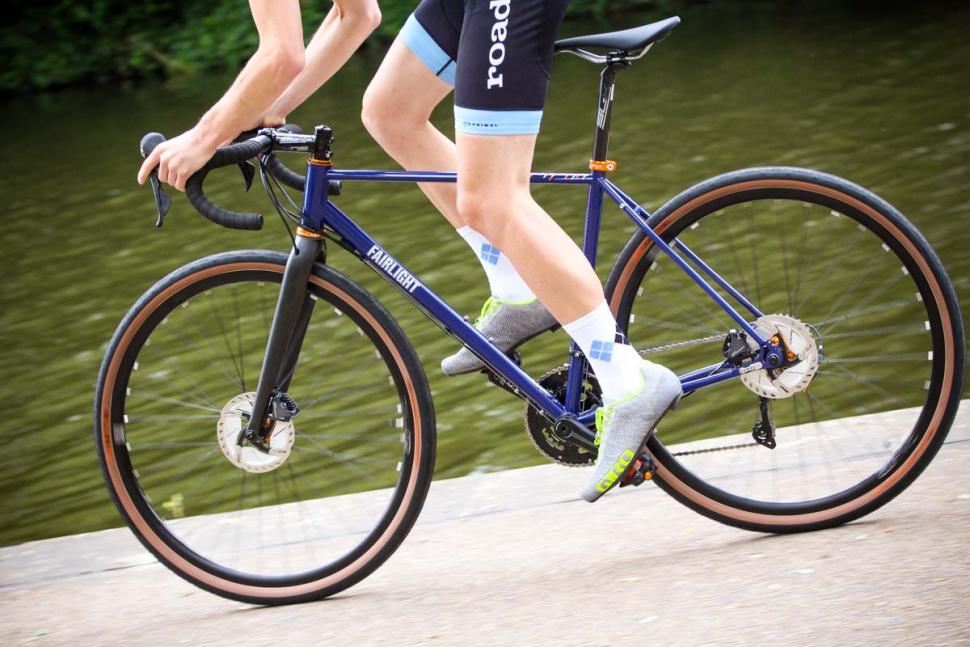
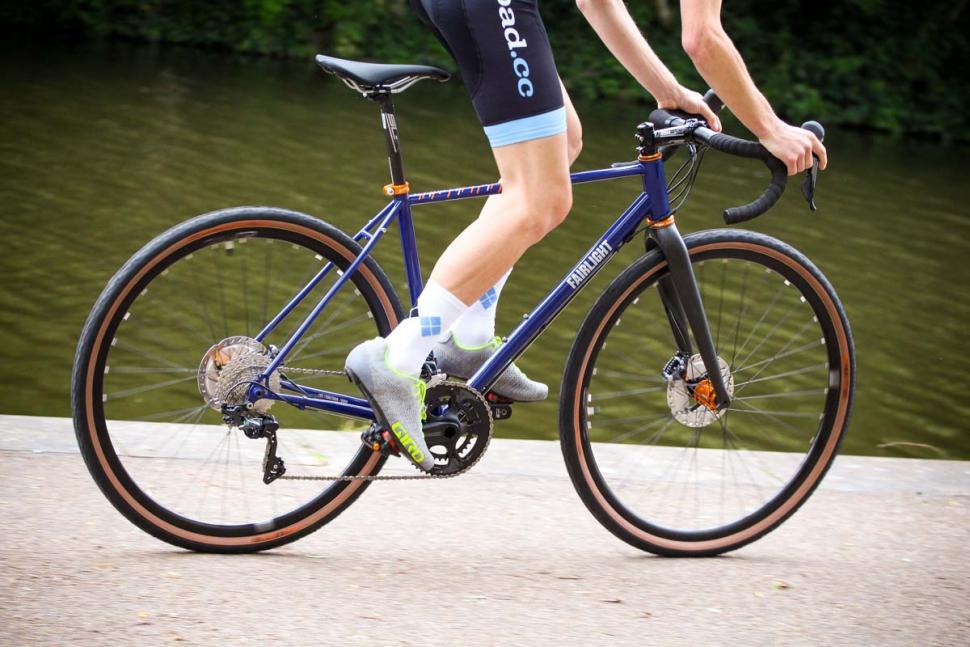
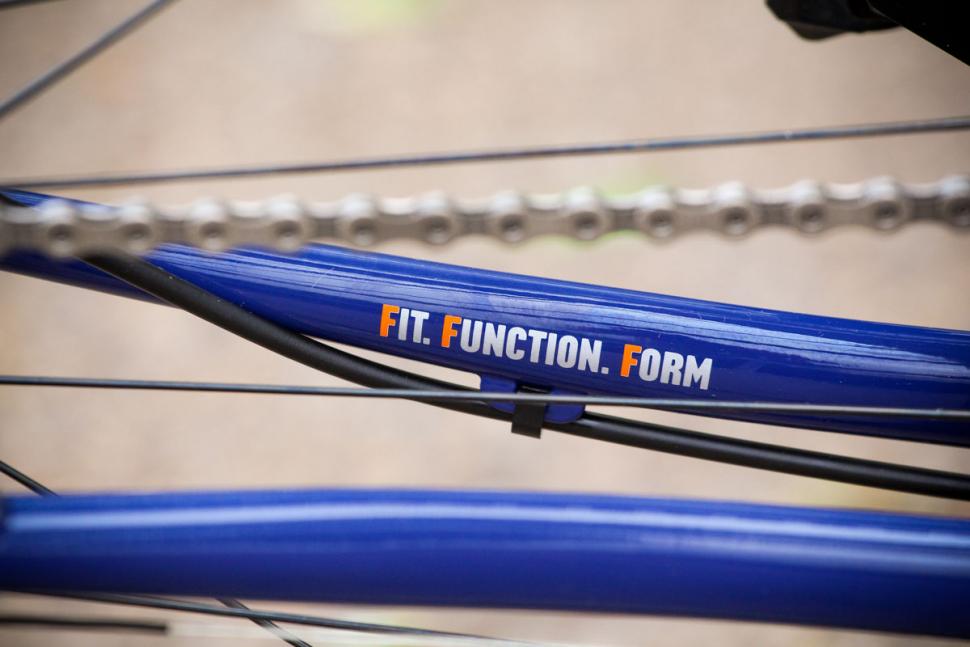
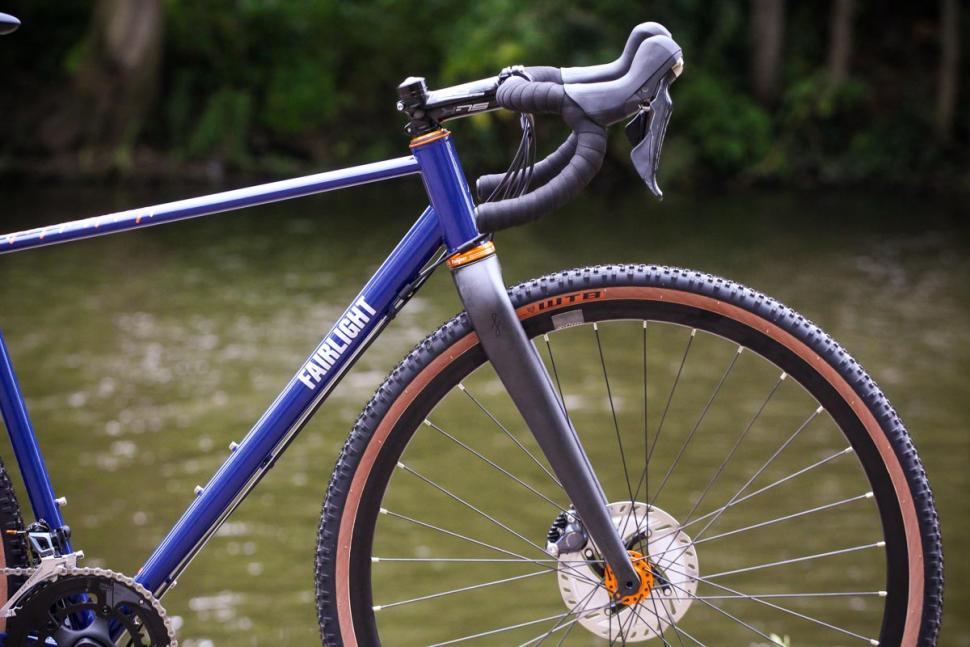
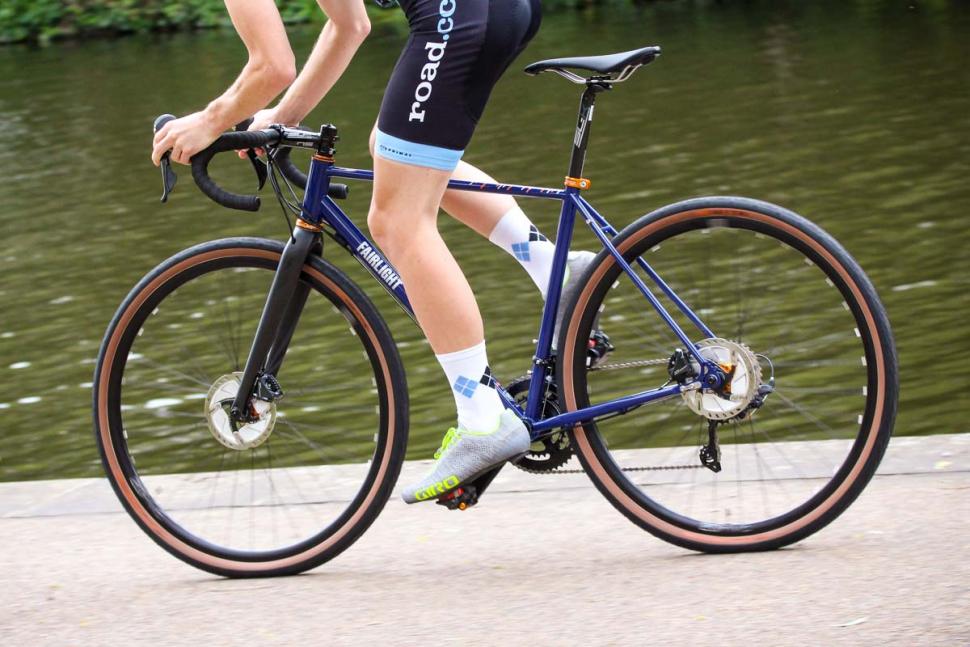
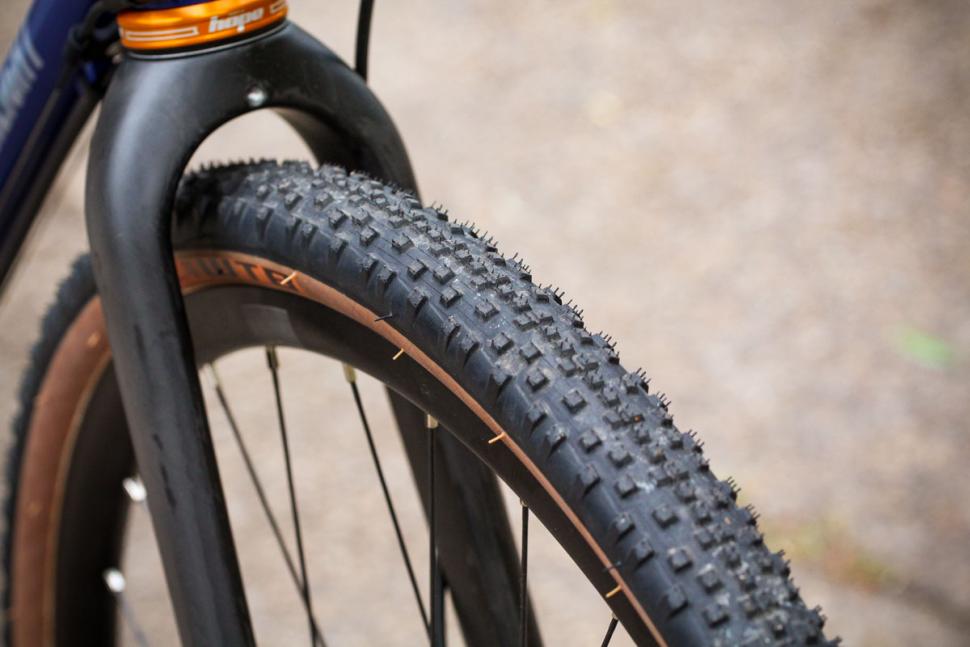
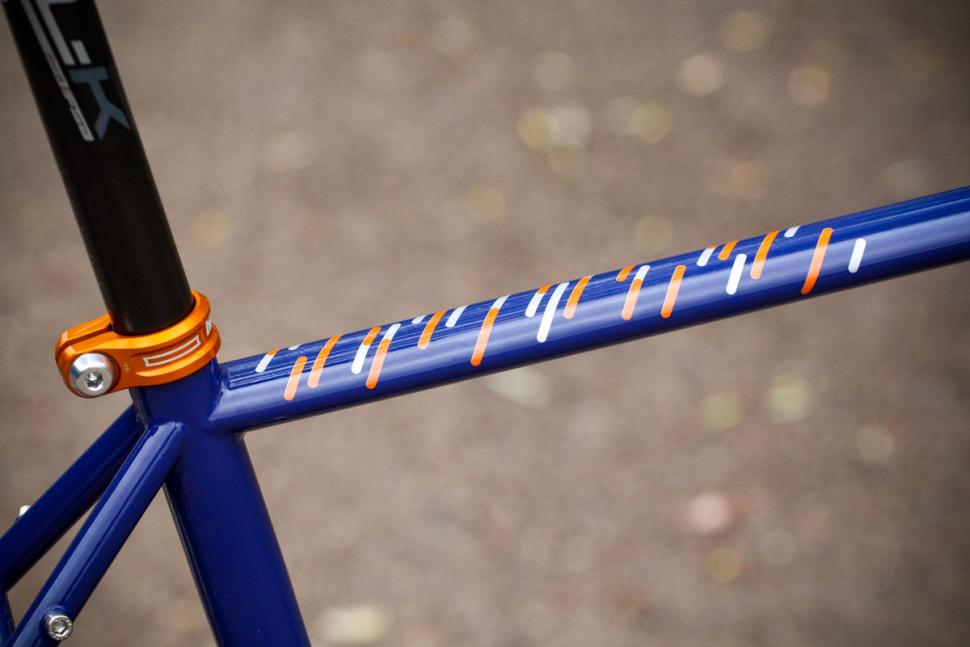
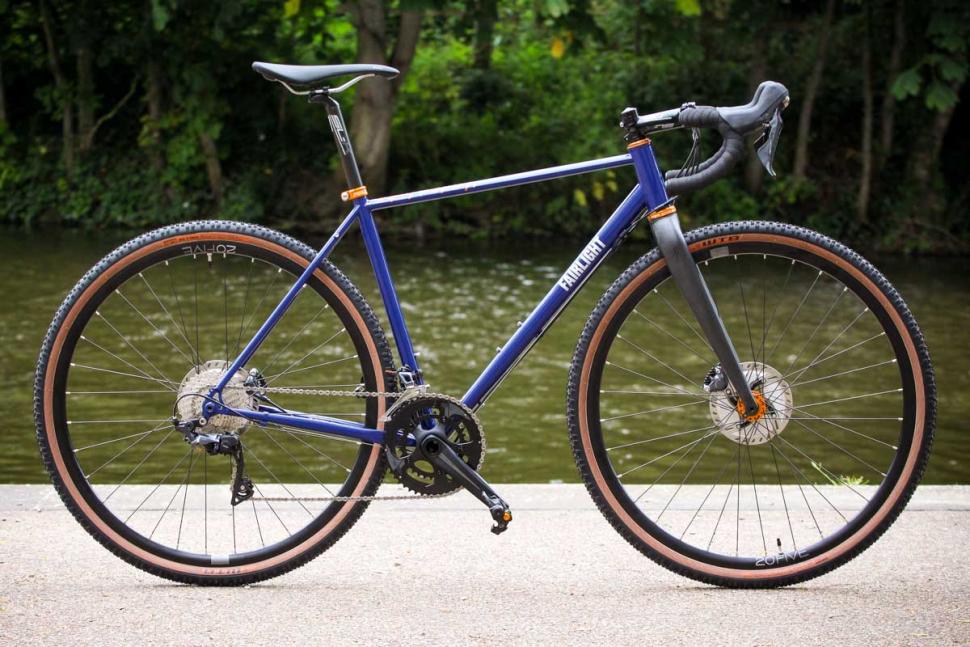

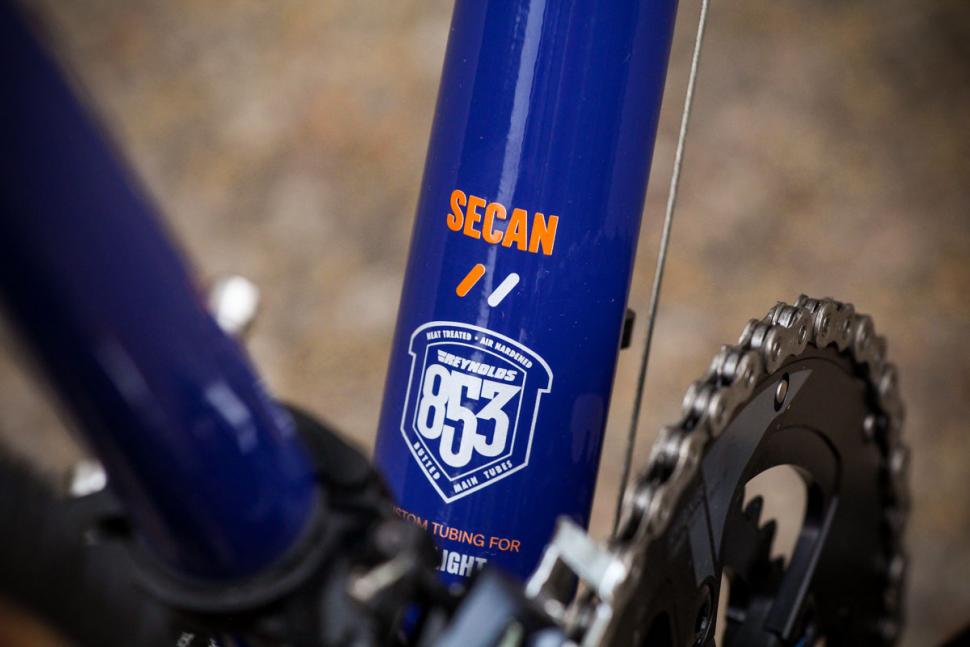
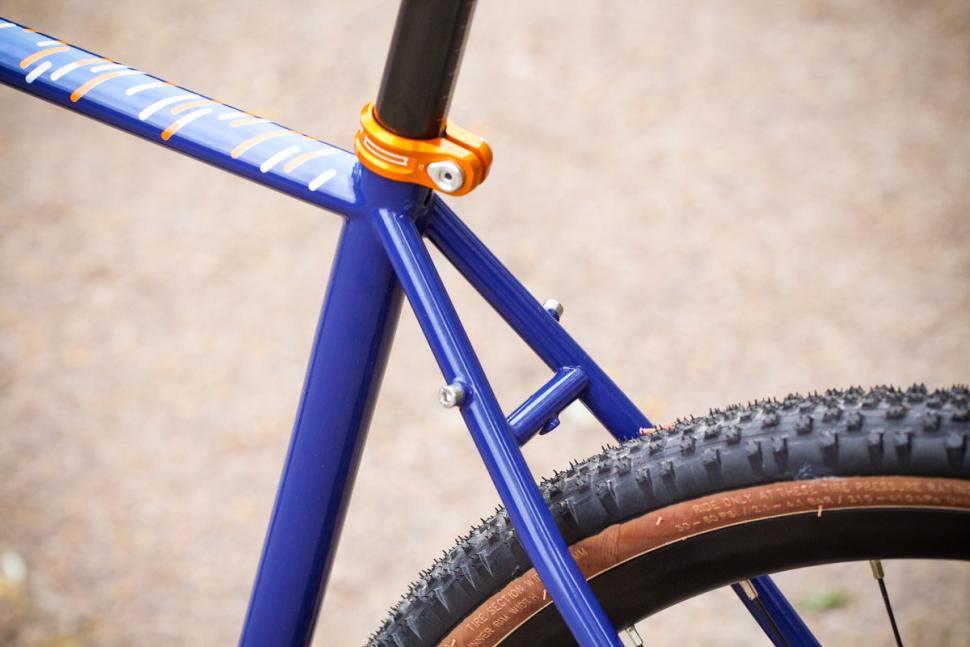
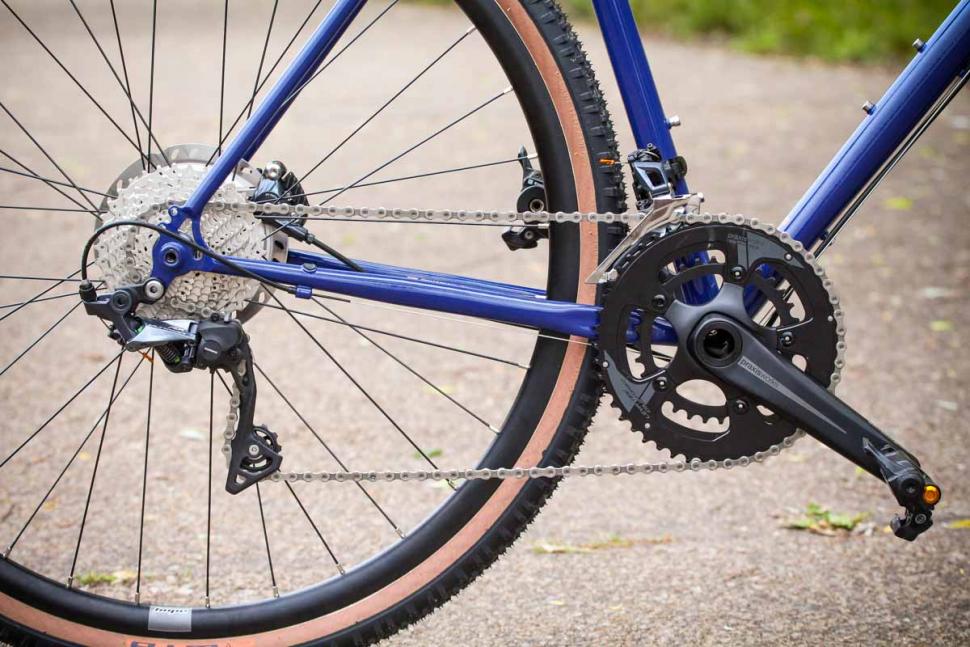
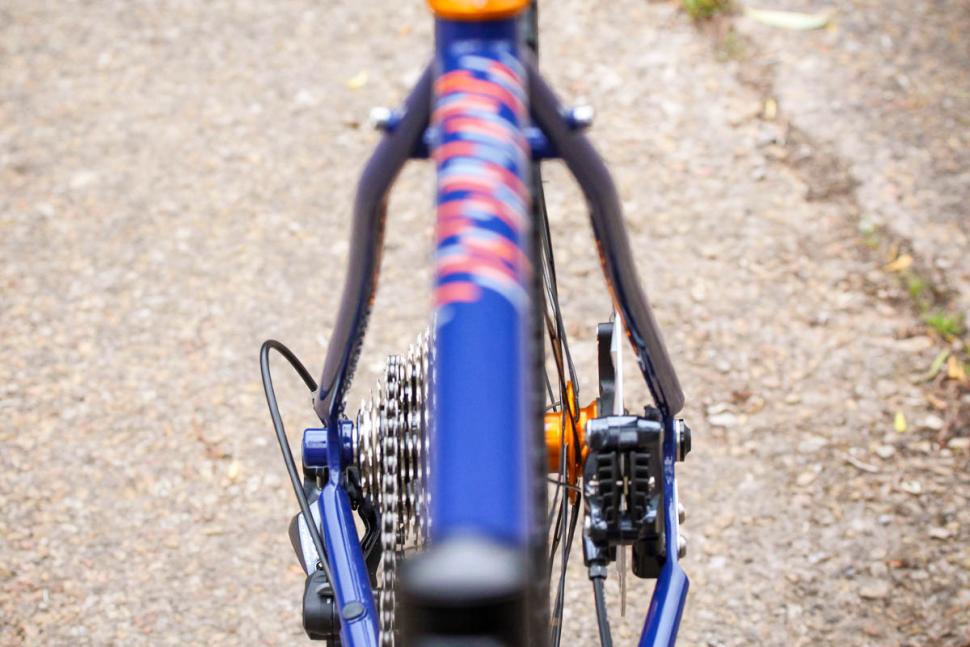
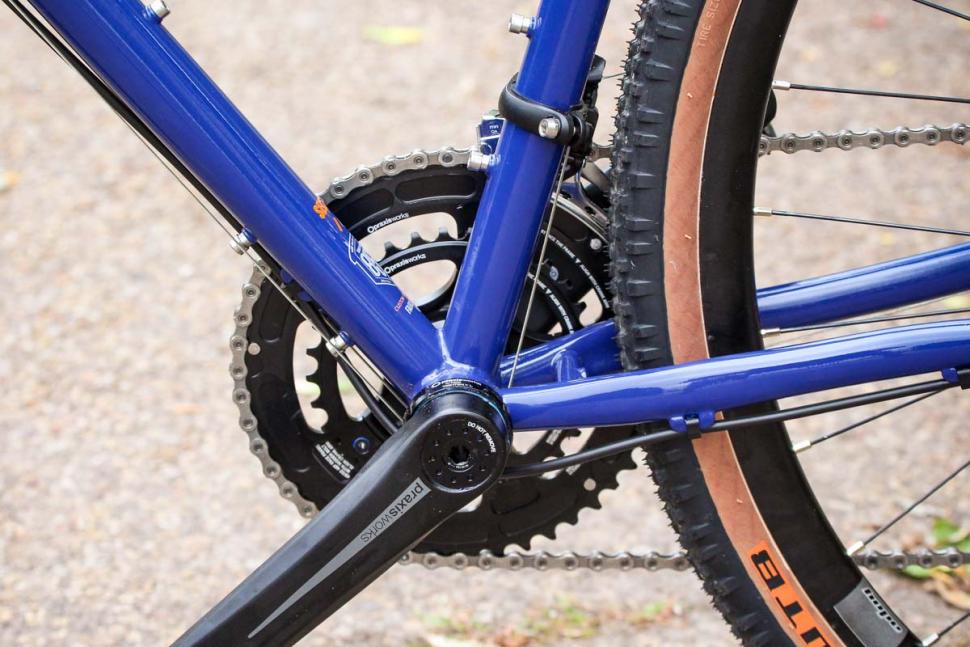
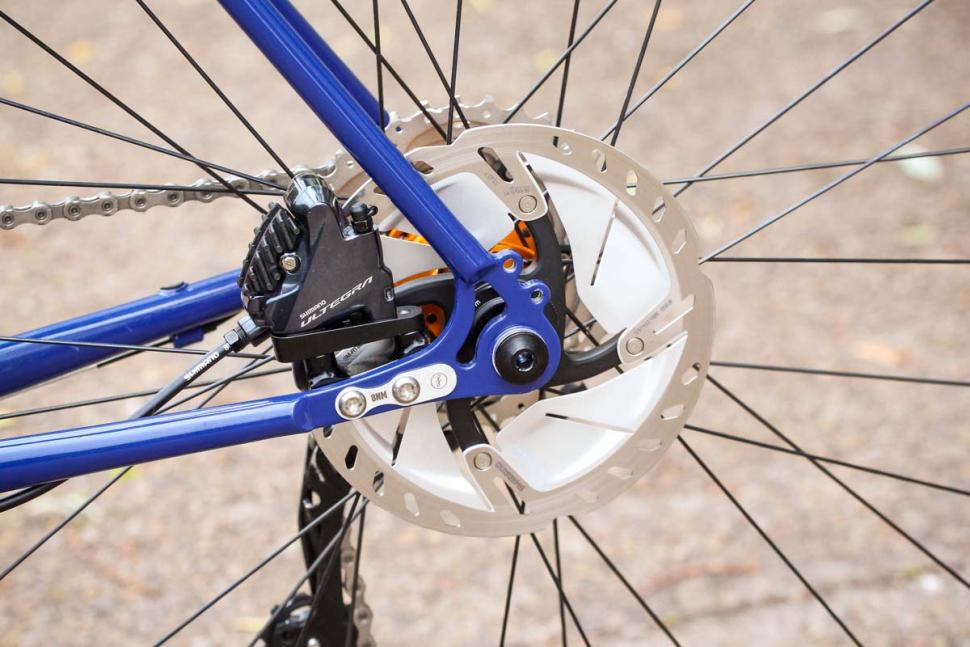
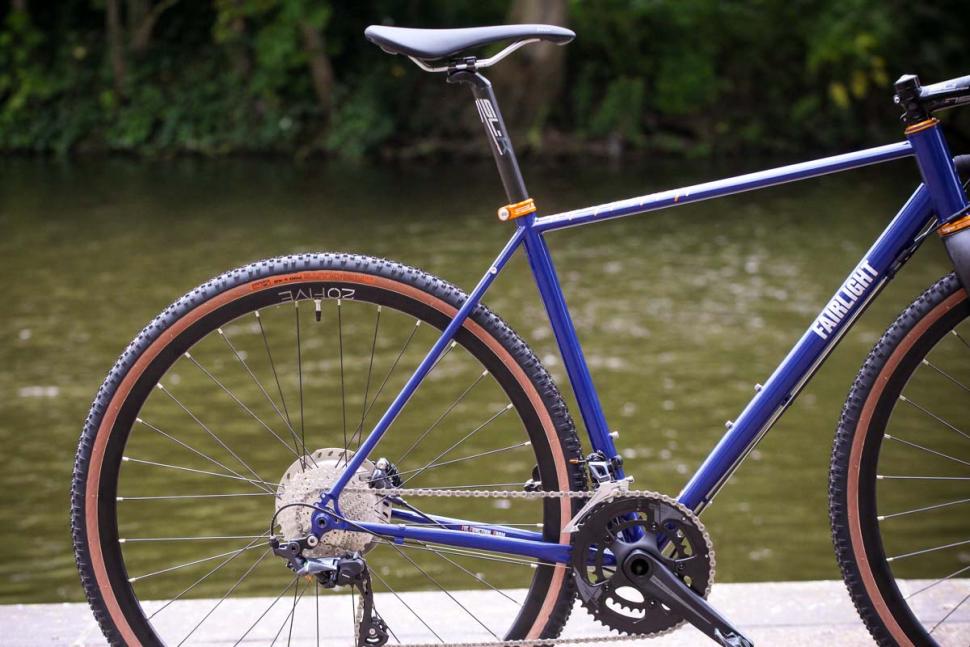
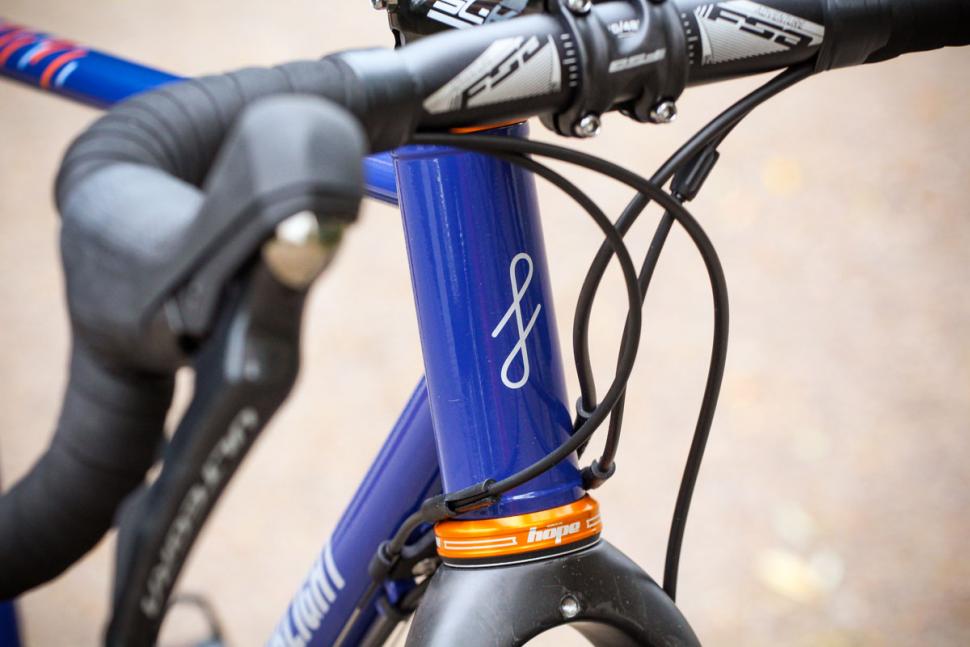
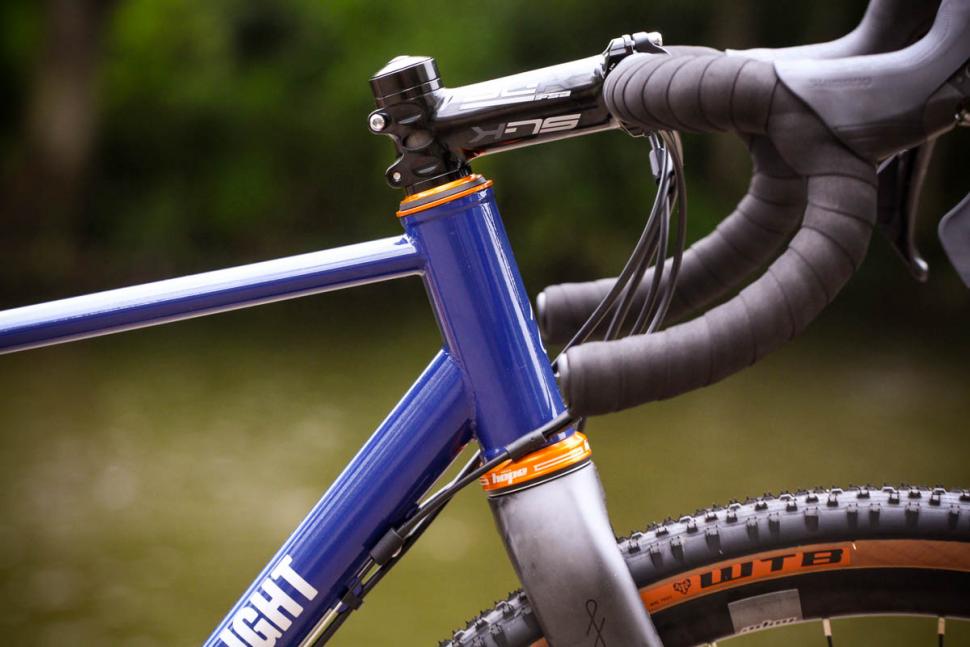
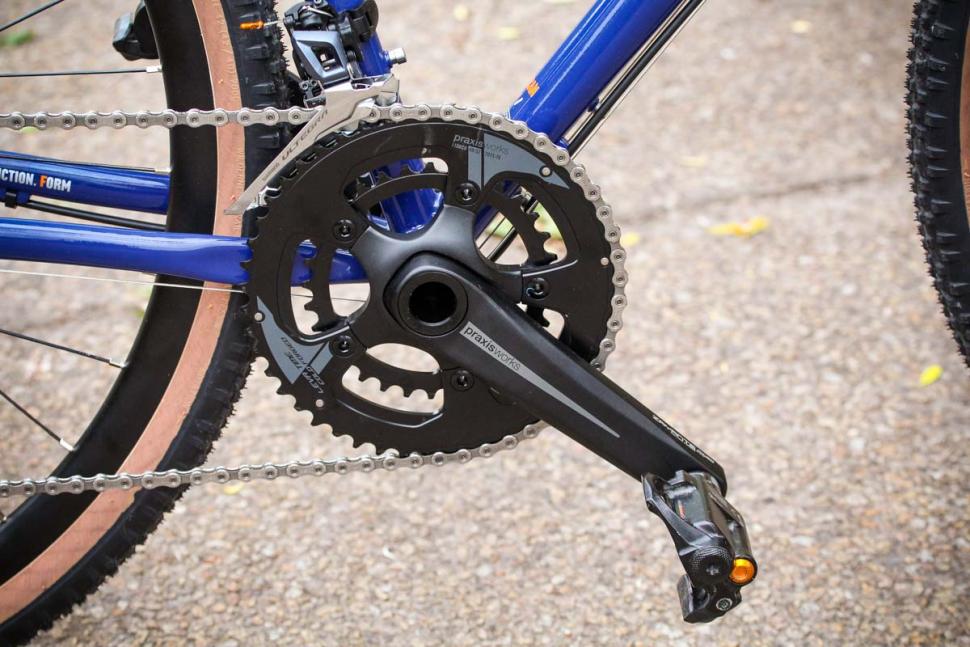
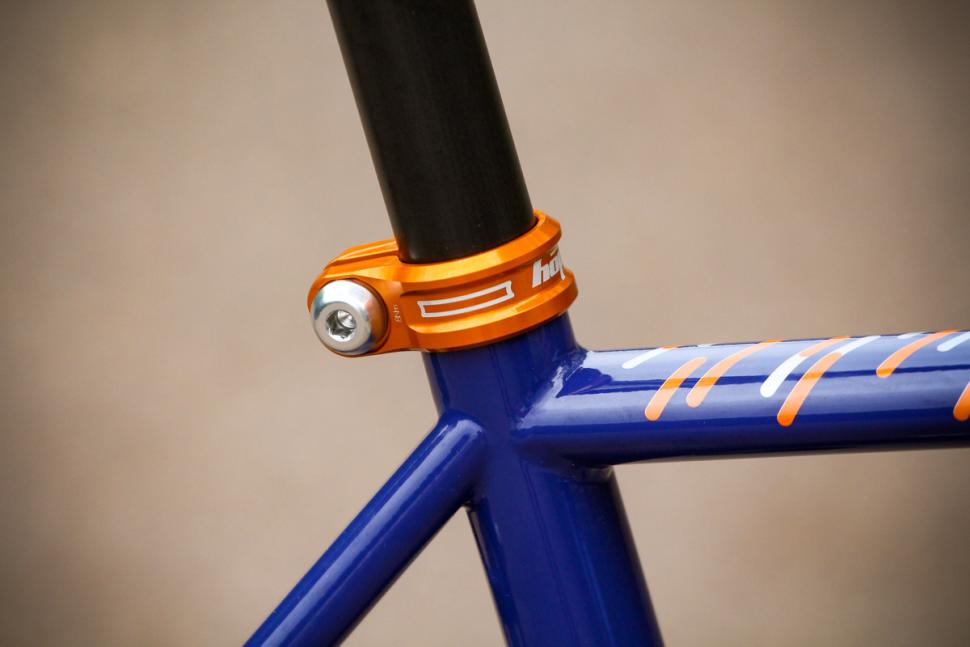
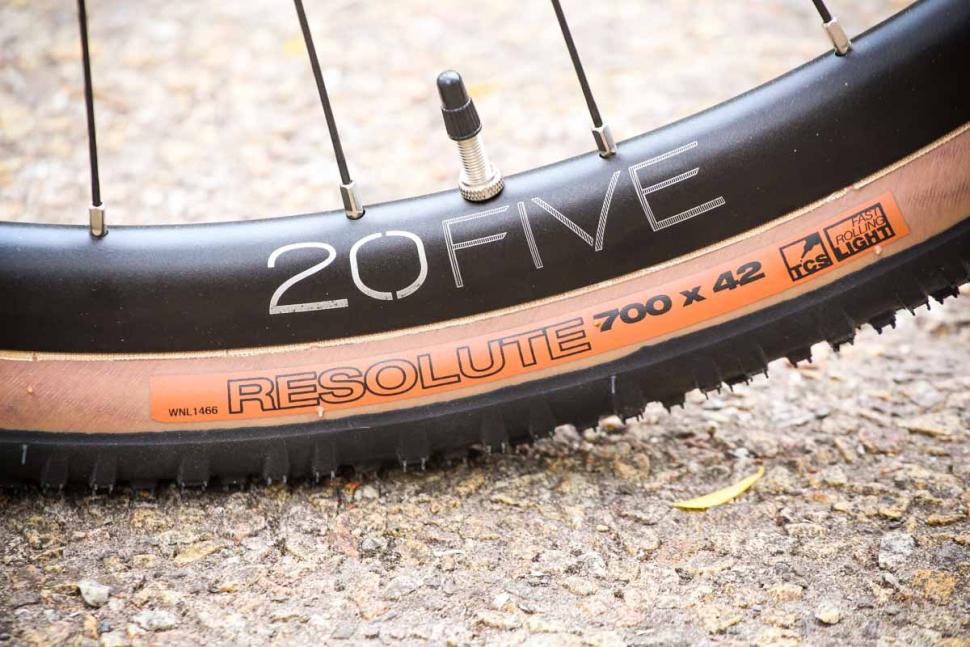
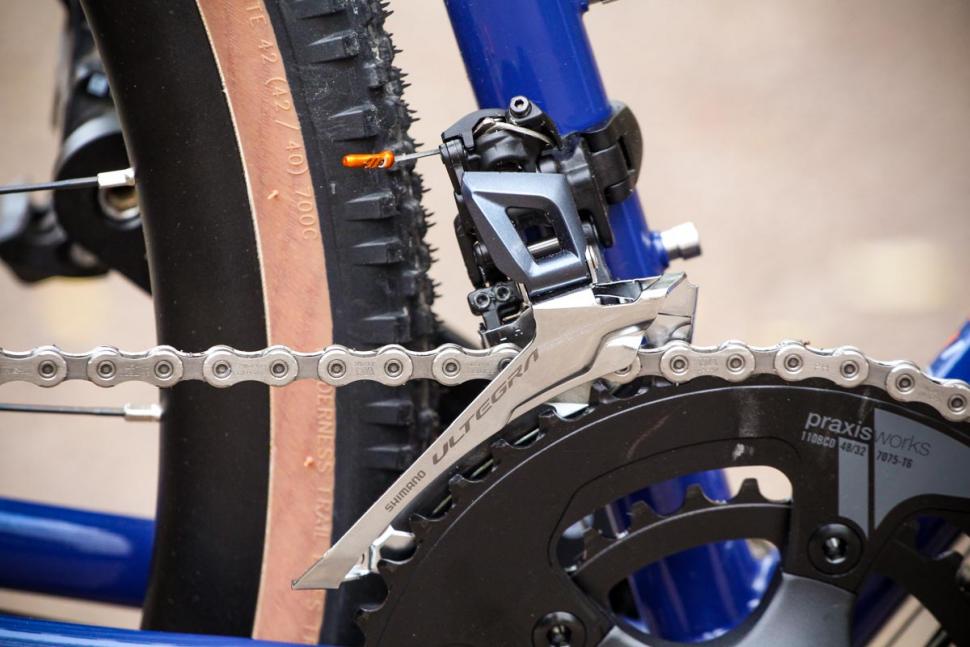

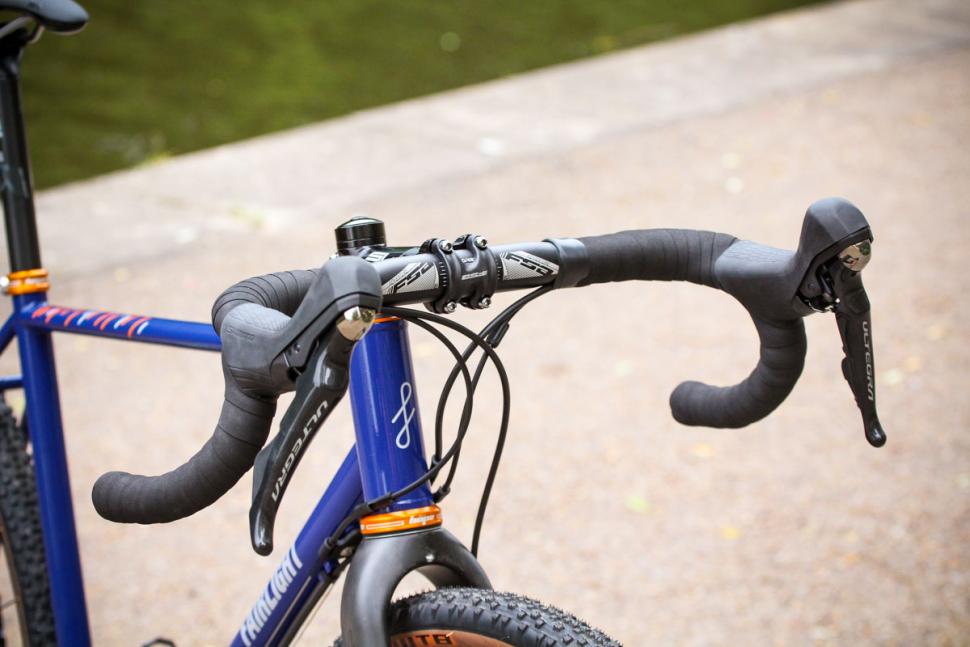
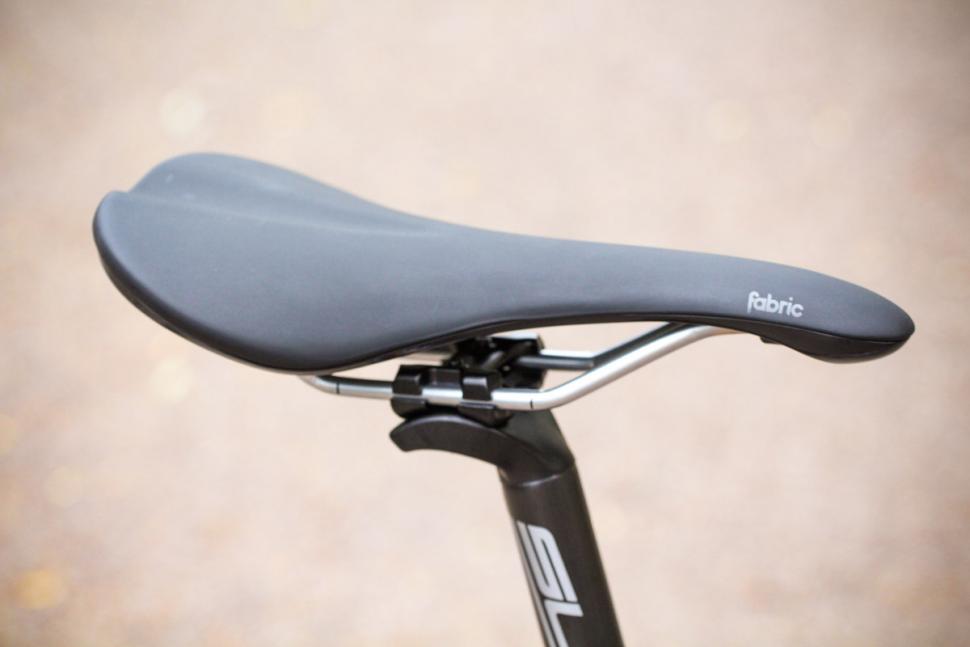
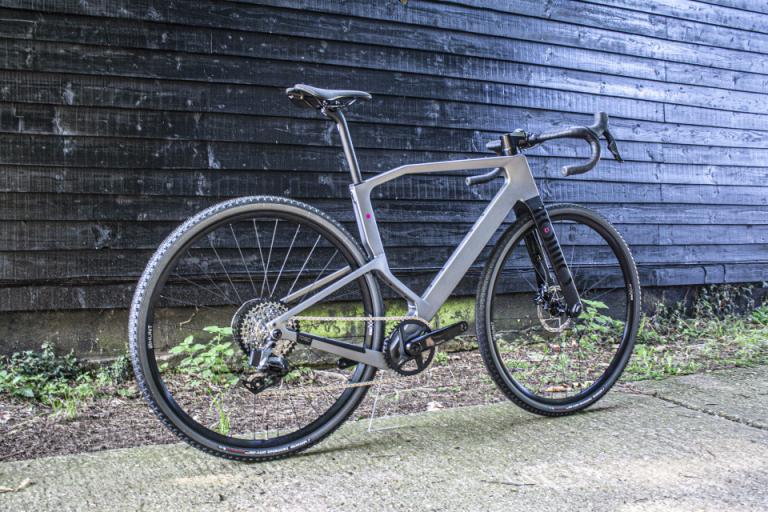
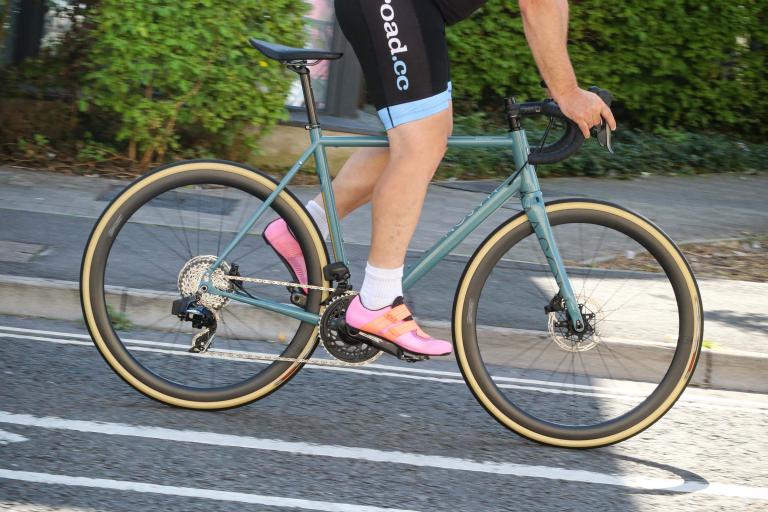
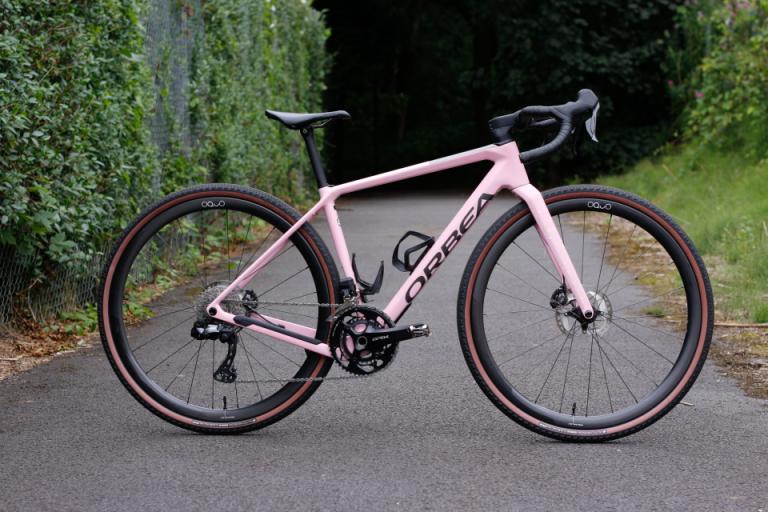
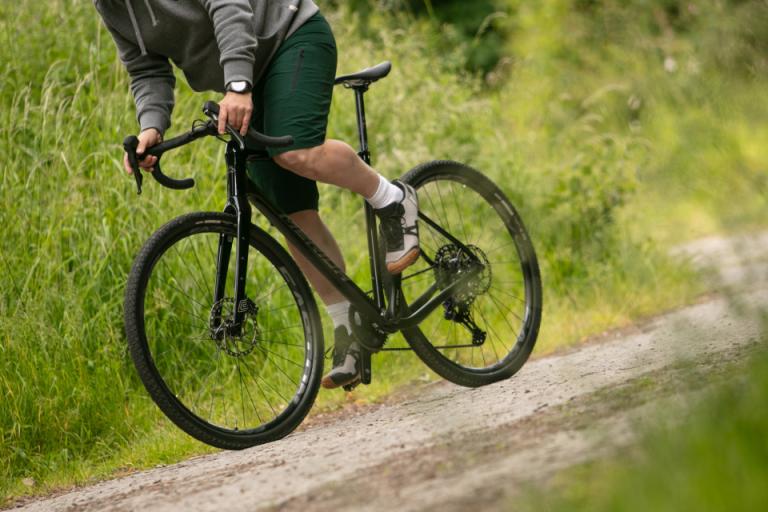
Add new comment
19 comments
For those without the deep pockets you can get something like the Salsa Marrakesh with 4130 triple butted framset for under £400 from Hewitts and Triton cycles. There's even the Ridgeback Panorama 853 for not a lot.
The weight is no big deal, plenty of fat bastards on carbon bikes around here lately - wierd thing is they all seem to have white sky jerseys on.
Seriously though I am a big fan of 853 frames especially one as well crafted as this.
Waited a long time for a bike like this, a modern steel bike with the attention and detail normally paid to other materials. Mine rides beautifully and feels amazingly 'planted' on the road and through a line. Secure but feels fleet and speedy at the same time. An immensely gratifying build (61R, SRAM Force, Hope 700c / WTB 42) that satisfies my need to go for a ride in every sense and enjoy every minute of it.
Exactly Simon. A 9.2kg carbon bike is a 10kg bike when it has a full 750ml bidon in the cage.
True.
More pertinently, getting weeny over weight on an adventure / gravel / all-road bike is totally missing the point. When these comments appear I always wonder how much effort these people put into reducing their own weight, by far the biggest factor in all-up weight.
By contrast the people for whom weight really matters - people who actually race bikes - don't post on here moaning about the weight of a bike they'll never buy, they choose an appropriate bike and get on with it. Like James Hayden, who wins back-to-back Transcontinental races on a steel bike (also a Fairlight, as it happens).
Larry Warbasse and Conor Dunne, who recently found themselves short of work after the AquaBlue team folded, loaded their bikes with kit and food and went bikepacking across the Alps for their #NoGoTour. Did they whine on forums about rotating weight or the limitations of 1x drivetrain? Did they try to save weight by sawing a toothbrush in half? Did they f..k!
https://rouleur.cc/editorial/tag/nogo-tour/
Adam Blythe was moaning about 1x gearing.
That's a bit like saying you could make a 50kg weight lighter by making it from 25kg of metal and labelling it '25kg'...
Looks nice, but at 10kg it's way too heavy. It would be a lot lighter if they made the frame out of (for instance) carbon fibre. Certainly worth thinking about.
You're missing the point, both in terms of why they chose a steel frame and why a bike weighing 10kg is not a big deal.
There are plenty of carbon fibre bikes available like the Datum (9.6 kg), Orro Terra (9.1 kg), GT Grade (9.2 kg) or Specialized Diverge (8.9 kg).
https://road.cc/category/product-type/gravel-and-adventure-bikes
That's a beautiful bike. At last we can own a steel bike that looks like an alloy one.
And rides better, to boot. It feels super crisp yet supple. Always wanted a ride-feel like this. Now I have it.
Unsure about how good an idea exposed gear cables are on a bike intended for off-road use. Other than that it sounds like a fun ride and is certainly a lovely looking machine.
I have what's effectively this bike's predecessor, the Faran. Same chainstay length and head tube angle, but built with 631 and has a steel fork.
What I love about my Faran is the versatility - I built it as a commuter and fully-loaded it with racks, guards, and dyno lights. Then I changed jobs and it was pressed into service as a tagalong mule. Now my son's on his own mountain bike and getting into hammering around forest tracks it's getting stripped down and turned into an offroad machine - 650B, no guards, no rack, huge knobblies. It's never going to be a head down road bike (I've got something else for that purpose) but it's great at everything else. If I had the time I could easily tour on it and lug enough kit for the whole family.
A thorough review and a lovely looking bike!
Looks fabulous.
Two curiosities:
- why no cargo cage or low rider rack mounts on the fork? I'd want them on such a bike, and it seems like every other bike in this class has them (Sequoia, RTL Steel, Flaanimal). I guess you could potentially swap out the fork
- No replaceable derailleur hanger? Is this less of an issue with thru-axle? Meaning, because it doesn't have the entry slot of a dropout, is it stronger?
It's an odd one with the hanger but as Shimano moves to direct mount it should hopefully be less of an issue. Although you do then I guess end up trashing an entire derailleur rather than just the hanger.
My Faran has low-riders, very useful, but it has a steel fork. I think it can be a challenge to rate a carbon fork for much more than 5kg, certainly I've heard that mentioned elsewhere.
It's not odd at all. It's unusual in fact for steel bikes to have replacable hangers. All you do is bend it back using derailleur alignment bar. eg. https://www.parktool.com/product/derailleur-hanger-alignment-gauge-dag-2-2
It's possible. Jamis Escapade comes to mind which is a £500 Reynolds 631 frameset with carbon fork with lowrider mounts. https://www.jamisbikes.com/usa/renegadeescapade.html
I'm not sure what the weight limit on the fork is. There was a review, linked to from their site saying 25lbs (11.3kg) but I'm not sure I'd go with that as fact.
And for the weight weenies, they do an all up carbon bike weighing 8.16kg.
The Secan is much prettier however.
Specialized FACT carbon forks on their globe/tricross easily take 10kg and more, problem is there's so few aftermarket carbon forks out there with low rider mounts, Columbus Tusk Trekking but rare as rocking horse shit and damn expensive.
Of newer bikes (that also have pannier rack mounts), Jamis Renegade Expat/ Explore/Exploit/Escapade, the latter two have R631, Ribble CGR, Trek Crossrip, I'd expect way more than 5kg load on the forks tbh
Sounds lovely. Lots of thought in the design and a quality build ...